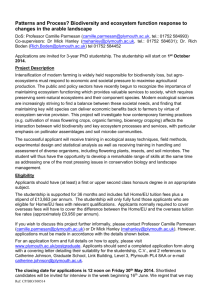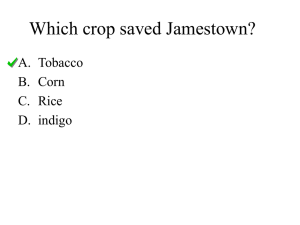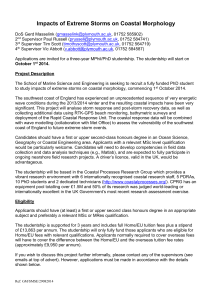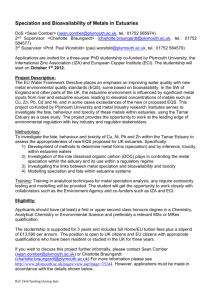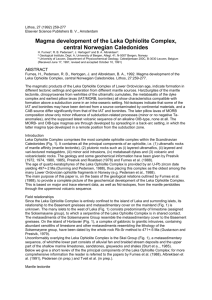School of Geography, Earth & Environmental Sciences Title
advertisement
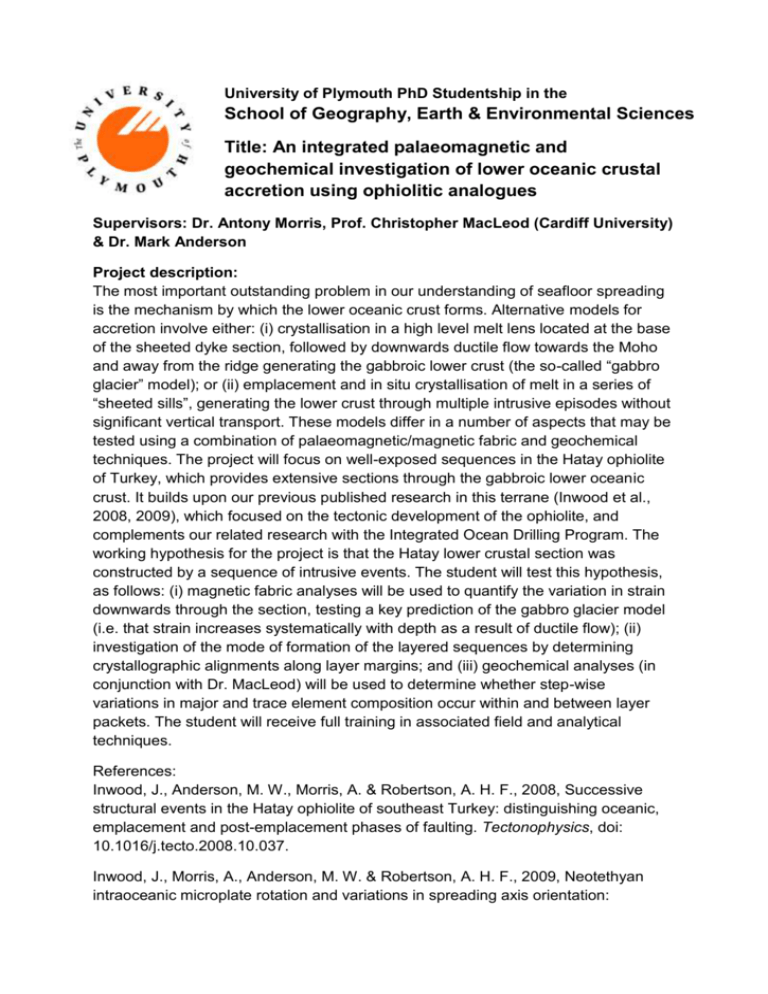
University of Plymouth PhD Studentship in the School of Geography, Earth & Environmental Sciences Title: An integrated palaeomagnetic and geochemical investigation of lower oceanic crustal accretion using ophiolitic analogues Supervisors: Dr. Antony Morris, Prof. Christopher MacLeod (Cardiff University) & Dr. Mark Anderson Project description: The most important outstanding problem in our understanding of seafloor spreading is the mechanism by which the lower oceanic crust forms. Alternative models for accretion involve either: (i) crystallisation in a high level melt lens located at the base of the sheeted dyke section, followed by downwards ductile flow towards the Moho and away from the ridge generating the gabbroic lower crust (the so-called “gabbro glacier” model); or (ii) emplacement and in situ crystallisation of melt in a series of “sheeted sills”, generating the lower crust through multiple intrusive episodes without significant vertical transport. These models differ in a number of aspects that may be tested using a combination of palaeomagnetic/magnetic fabric and geochemical techniques. The project will focus on well-exposed sequences in the Hatay ophiolite of Turkey, which provides extensive sections through the gabbroic lower oceanic crust. It builds upon our previous published research in this terrane (Inwood et al., 2008, 2009), which focused on the tectonic development of the ophiolite, and complements our related research with the Integrated Ocean Drilling Program. The working hypothesis for the project is that the Hatay lower crustal section was constructed by a sequence of intrusive events. The student will test this hypothesis, as follows: (i) magnetic fabric analyses will be used to quantify the variation in strain downwards through the section, testing a key prediction of the gabbro glacier model (i.e. that strain increases systematically with depth as a result of ductile flow); (ii) investigation of the mode of formation of the layered sequences by determining crystallographic alignments along layer margins; and (iii) geochemical analyses (in conjunction with Dr. MacLeod) will be used to determine whether step-wise variations in major and trace element composition occur within and between layer packets. The student will receive full training in associated field and analytical techniques. References: Inwood, J., Anderson, M. W., Morris, A. & Robertson, A. H. F., 2008, Successive structural events in the Hatay ophiolite of southeast Turkey: distinguishing oceanic, emplacement and post-emplacement phases of faulting. Tectonophysics, doi: 10.1016/j.tecto.2008.10.037. Inwood, J., Morris, A., Anderson, M. W. & Robertson, A. H. F., 2009, Neotethyan intraoceanic microplate rotation and variations in spreading axis orientation: palaeomagnetic evidence from the Hatay ophiolite (southern Turkey). Earth and Planetary Science Letters, 280, 105-117. Further details: Applicants should have a good degree (2:1 or 1st class honours) in an appropriate subject. This PhD studentship will start immediately (by 1st April 2010) for a fixed term of 3 years. The student will receive a stipend of approximately £13,290 per annum and tuition fees (approximately £3,400). The studentship will only fully fund those applicants who are eligible for Home/EU fees with appropriate qualifications. Applicants eligible for overseas fees would have to cover the difference (approximately £6,600) between the Home/EU tuition fee and the tuition fee for an overseas student. Scientific Enquiries can be made to Dr Antony Morris, e-mail: antony.morris@plymouth.ac.uk or Tel. 01752 584766. General information about applying for a research degree at the University of Plymouth and application forms are available at http://www.plymouth.ac.uk/pghowtoapply or by contacting Catherine Johnson (catherine.johnson@plymouth.ac.uk). Applications should be sent direct to Miss Catherine Johnson (catherine.johnson@plymouth.ac.uk) Faculty of Science & Technology Research Office, University of Plymouth, A503 Portland Square, Drake Circus, Plymouth PL4 8AA. Please include a covering letter and CV. The closing date for applications is 12 noon on Monday 22nd March 2010. Shortlisted candidates may be asked to interview the following week. We regret that we may not be able to respond to all applications.

